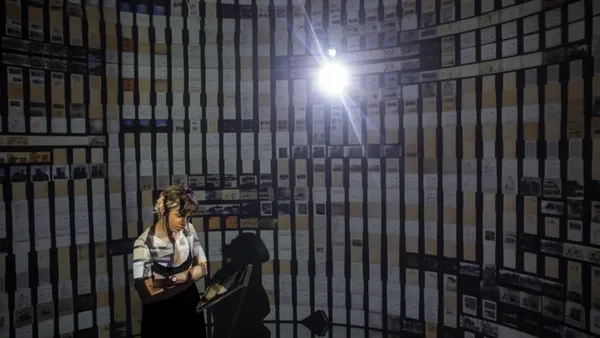Remy Meraz co-founded Zella Life because she was in an all-too-familiar position for many Latinx people and women of color. “I often found myself to be the only woman in the room or the only person of color in the room and or sometimes both,” Meraz, Zella Life’s CEO, told HR Dive. Working her way up the corporate sales ladder revealed that it was lonely at the top.
“In the majority of my work situations, I did not see people that look like me — that were of color or female. I didn't feel like I had anybody that I could go to in terms of mentorship, support or advice,” she said. In the rare situations where Meraz wasn’t an “only,” she said she and her Black and brown colleagues easily picked up on the favoritism doled out by White managers to White sales reps. In one instance, she recalled, “We banded together and took it to the managing director, and she addressed it with our leader that we were reporting on. And we all ended up systematically getting fired.”
After that experience, Meraz decided, “I'm never going to ever talk about anything or say anything.”
It was only after going to therapy that the ice started to thaw around Meraz’s past traumas. With her therapist and coaches, her self-awareness increased. So did her confidence, she recounted, and her career trajectory changed. Her imposter syndrome melted away too. “I started achieving more leadership roles. I think the biggest thing was that I felt empowered and I felt competent to speak up,” she said.
Part of her success was owed to having a confidant, who could give wise counsel on how to handle difficult situations.
So Zella Life was born, giving BIPOC clients who were also experiencing microaggressions, psychological unsafety and imposter syndrome an incubator to be coached. Given that many BIPOC in corporate spaces are the “only,” sometimes an external source is needed for mentorship, Meraz explained; Black and brown workers can tap into these resources to find people who, finally, look like them. “People have been oppressed, repressed and afraid to speak up for millions of reasons — be it losing their life or getting fired. We have to point it out. We have to label [oppression] as such. Because it's not OK.”
Along with the headlines, all people have to do to assess the state of the world is look at memes and social media posts. How people show up in situations, “given everything going on in the world today, between the pandemic and inflation and everything else” is apparent. Using her platform to coach BIPOC, Meraz said she is interested in freeing people from “the pressure cooker situations” that will cause people to act out.
Or in turn, not reach their highest potential. Meraz pointed to a stat suggesting that 70% of people in the U.S. will experience imposter syndrome at least once in their life.
“With BIPOC folks, it's going to be more of a daily or weekly battle. And again, the more awareness that you have about it, the better you can navigate and understand why it's happening, when it's happening,” Meraz said; ensuring that Black and brown corporate employees have the equipment to weather these storms is crucial for success.













